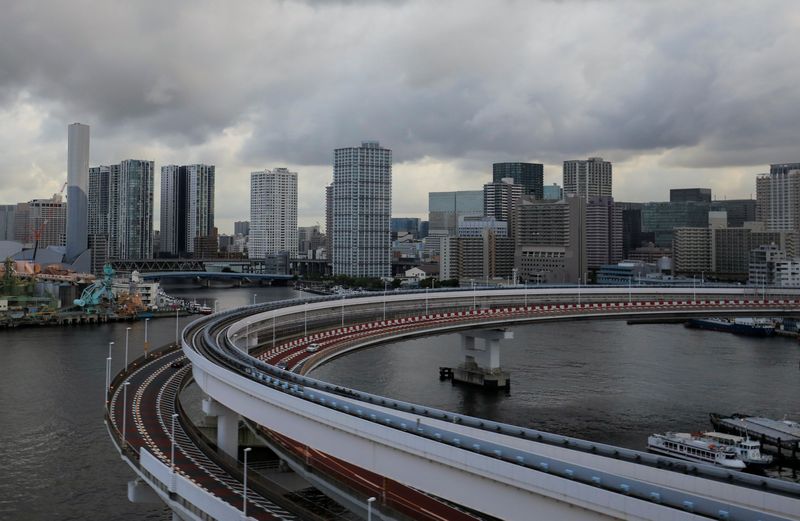Inflation in Japan’s capital re-accelerates in February

A view of the Tokyo skyline is seen through the window of a special bus transporting journalists to the media hotel during the Tokyo 2020 Olympic Games in Tokyo, Japan, August 2, 2021. REUTERS/Amr Abdallah Dalsh/ File Photo
By Takahiko Wada and Leika Kihara
TOKYO (Reuters) -Core inflation in Japan’s capital re-accelerated in February above the central bank’s target as the effects of government fuel subsidies faded, data showed on Tuesday, a sign conditions for ending negative interest rates were falling into place.
But an index stripping away the effect of energy costs, seen as an indicator of the broader price trend, slowed, shifting the focus on whether Japan can see wage hikes strong enough to underpin consumption.
The data will be among factors the Bank of Japan (BOJ) will scrutinise ahead of its policy-setting meeting on March 18-19 in judging whether to phase out its massive stimulus programme.
Core consumer price index (CPI) in Tokyo, a leading indicator of nationwide figures, rose 2.5% in February from a year earlier, matching market forecasts, data showed on Tuesday.
The rise in the core index, which strips away the effect of volatile fresh food prices, followed a 1.8% rise in January.
A separate index that excludes the effect of both fresh food and fuel costs, rose 3.1% in February from a year earlier, slowing from a 3.3% gain in January. It was the slowest annual pace of increase since February 2023.
“The disinflation isn’t very broad-based as it mostly reflects a slowdown in processed food inflation,” Marcel Thieliant, head of Asia-Pacific at Capital Economics, said on the slowdown in the index excluding fresh food and energy.
“There’s nothing in today’s report that would prevent the Bank of Japan from ending negative interest rates next month.”
Japan unexpectedly slipped into a recession at the end of last year with the economy shrinking an annualised 0.4% in October-December on weak corporate and household spending.
But with inflation having exceeded 2% for well over a year and prospects for bumper wage hikes heightening, many market players expect the BOJ to end its negative interest rate policy by April.
BOJ Governor Kazuo Ueda said last week that it was too early to conclude that inflation was close to sustainably meeting the central bank’s 2% target. But he said the economy was recovering moderately and showing promising signs on the wage outlook.
In an effort to reflate growth and keep inflation stably at its 2% inflation target, the BOJ currently guides short-term rates at -0.1% and the 10-year government bond yield around 0%.








